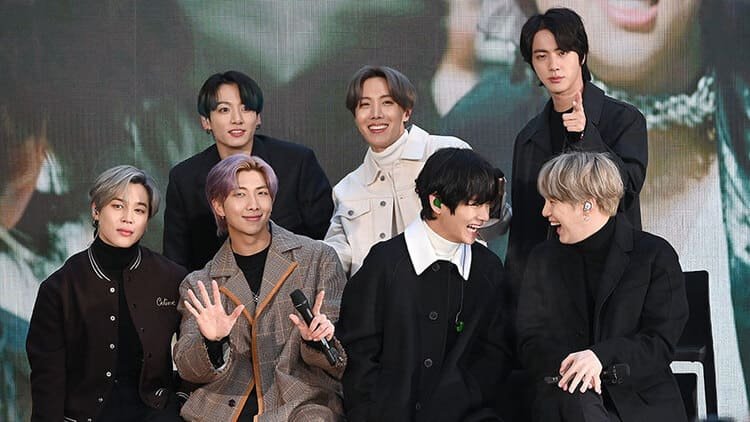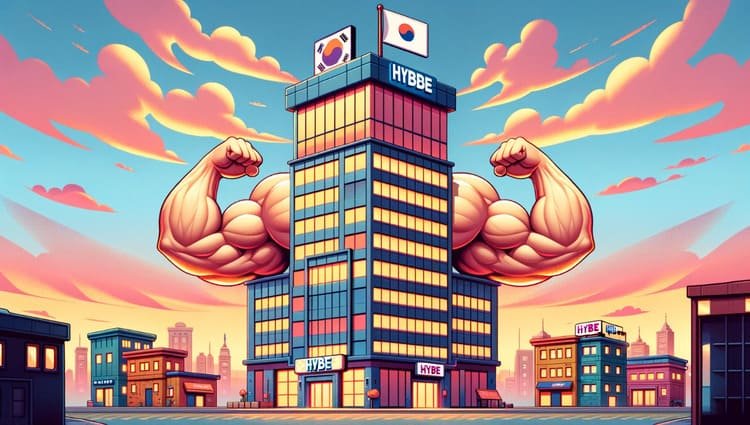HYBE, the famous agency behind the global K-pop sensation BTS, has recently been labeled as a chaebol, a term used for large South Korean conglomerates. This new status means HYBE will face more stringent antitrust regulations. The news comes amidst ongoing disputes between HYBE and executives of its subsidiary, Ador, which manages the popular girl group NewJeans. The Fair Trade Commission (FTC) announced this on Wednesday, highlighting important implications for the company's internal operations and regulatory compliance.
What is Hybe
HYBE Corporation, previously known as Big Hit Entertainment, is a South Korean entertainment company that has shaken up the K-pop industry. Founded by Bang Si-hyuk, HYBE shot to international fame due to BTS, a boy band that has achieved incredible global success. Besides BTS, HYBE manages several other labels and artists, using a multi-label system that includes names like Belift Lab, Source Music, Pledis Entertainment, and KOZ Entertainment. This extensive portfolio has made HYBE a major player in the entertainment world.

What is a Chaebol
A chaebol is a large South Korean conglomerate, usually family-owned, with significant economic power. These conglomerates have a vast network of affiliates and subsidiaries across different industries. In South Korea, chaebols are closely monitored to prevent monopolistic practices and ensure fair competition. Companies tagged as chaebols must reveal detailed information about their intra-affiliate transactions, ownership structures, and financial status of their unlisted affiliates.
Why HYBE's Designation Matters
The FTC's move to classify HYBE as a chaebol is a big deal, as it's the first entertainment company to get this label. This change means that HYBE, with assets worth 5.25 trillion won (around $3.65 billion), must now follow stricter disclosure rules. The company has to report all large-scale transactions within its affiliates, providing more transparency about its internal operations.
This designation is part of the FTC's broader effort to monitor the Korean entertainment industry's rapid growth, driven by K-pop's global popularity. By regulating companies like HYBE, the FTC aims to make sure that the industry's expansion doesn't lead to unfair market practices.
Implications for HYBE and Bang Si-hyuk
As the largest shareholder with a 31.8 percent stake, HYBE's founder Bang Si-hyuk is under scrutiny for potential unfair transactions involving his family members' control over affiliates. The company is now required to disclose detailed information about its affiliates, and any failure to do so could result in Bang facing warnings or prosecution.
This increased scrutiny also emphasizes the need for HYBE to keep meticulous records of its intra-affiliate transactions and ensure full compliance with regulatory requirements. Transparency in its operations will be crucial to avoid potential legal issues and maintain its reputation in the industry.
The Impact of K-pop on the Global Music Industry
The rise of K-pop, led by superstars like BTS, has had a huge impact on the global music industry. K-pop has captivated a massive international audience with its catchy tunes and high-energy performances. Furthermore, it has also set new standards for fan engagement through social media and digital platforms. The genre's innovative approach to music production, marketing, and fan interaction has influenced artists and music companies worldwide, leading to collaborations across different cultures and languages. This cross-cultural exchange has helped break down barriers in the music industry, creating a more globalized and interconnected musical landscape.

My Opinion on Chaebol Regulation
I believe it's a good thing that conglomerates are put under a microscope by the government regarding their business practices. The fact that Bang Si-hyuk is already being investigated for possible unfair transactions with affiliates controlled by his family members makes me wonder if there are other questionable activities within the company.
As a businessman myself, I strive to be ethical. It's troubling to see big conglomerates strong-arming small businesses or pushing them out of the market, which is not ethical. Better regulation would give smaller companies a chance to succeed instead of constantly fighting an uphill battle. Conglomerates played a crucial role in building South Korea's economy, but nowadays, they seem to do more harm than good by stifling competition and innovation.
HYBE's new status as a chaebol marks a critical turning point for the company and the broader Korean entertainment industry. The designation brings heightened regulatory scrutiny and demands greater transparency in its operations. As HYBE continues to expand its influence globally, adhering to these stricter regulations will be vital for its sustained success and integrity in the market.
Picture credits:
https://en.yna.co.kr/ (Bang Si-Hyuk)
BTS (Photo: Sipa USA / Alamy Stock Photo)






